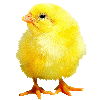|
The recognized mutations of the Button Quail are
Normal Wild type
Silver*
Red Breasted*
White*
Cinnamon*
Blue Face*
Golden Pearl*2
Pink eyed Dilute, very rare
The Recognized Color Combinations are
Ivory - A combination of Silver and Cinnamon
Slate* - A combination of Silver and Blue Face
Smoky - A combination of Silver, Cinnamon and Blue Face
Silver Red Breasted* - A combination of Silver and Red Breasted
Cinnamon Red Breast* - A combination of Red Breast and Cinnamon
Splash* - A selection from within White for increased spots (this is not a pied)
Fawn - Another name for Cinnamon often used for darker versions of Cinnamons
Blue Face Single Factor* - A name used to designate the difference within Blue Face having only one gene
for Blue Face
Blue Face Double Factor* - A name used to designate a very dark Blue Face, with 2 genes for BF, males and
female often show white facial and breast markings at hatching and at maturity.
Blue Face Cinnamon* - a combination of Cinnamon and Blue face genes
Pied* - A colored bird having white flight feathers
Silver Pearl - A combination of Silver and Golden Pearl
Cinnamon Pearl - A combination of Cinnamon and Golden Pearl
Blue Face Pearl - A combination of Blue Face and Golden Pearl.
To my knowlege, there are only a few types of button quail colors that are not recognized
Caramel - Only found in Australia.
Curly - Feather structure variant causing curled feathers on the back and neck
Australian Pied - Only found in Australia
* indicates that i have this color mutaion present in my birds
2 - a note for Golden Pearls - This gene is a deadly gene that can result in a large amount of dead eggs and chicks.
DO NOT breed 2 golden pearls, as this increases the gene and can severely weaken chicks and can kill them even 3 weeks after
hatching.
|

